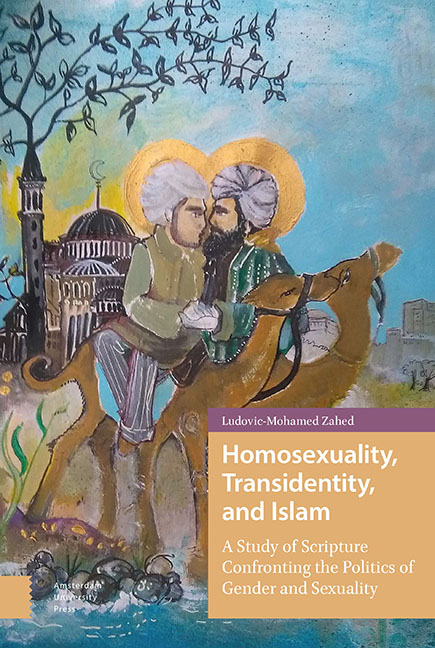 Homosexuality, Transidentity, and Islam
Homosexuality, Transidentity, and Islam Book contents
- Frontmatter
- Contents
- List of Figures
- Acknowledgments
- Foreword
- Introduction
- I The Qur’anic Ethics of “Nature”: Gender, Sexuality, and Diversity
- II Distressing Qur’anic Verses?
- III The Prophet: A Living Incarnation of Qur’anic Ethics
- IV Islamic Apocrypha Advocating the Stoning of “Sodomites”
- V Postcolonial Orientalisms
- VI “Abnormals”: From Cultural Diversity to Dogmatic Uniformity
- VII Towards a Structural Reevaluation of Cultural Values
- VIII Pan-Arabist Literary and Identity Censorship
- IX Orientalist Shi’ism and Literary Homoeroticism
- X Homonationalism and Performative Sexual Categorization
- XI A “Crisis” of Categories, Geopolitics or Civilization
- Conclusion
- Afterword
- Bibliography
- Index
X - Homonationalism and Performative SexualCategorization
Published online by Cambridge University Press: 20 November 2020
- Frontmatter
- Contents
- List of Figures
- Acknowledgments
- Foreword
- Introduction
- I The Qur’anic Ethics of “Nature”: Gender, Sexuality, and Diversity
- II Distressing Qur’anic Verses?
- III The Prophet: A Living Incarnation of Qur’anic Ethics
- IV Islamic Apocrypha Advocating the Stoning of “Sodomites”
- V Postcolonial Orientalisms
- VI “Abnormals”: From Cultural Diversity to Dogmatic Uniformity
- VII Towards a Structural Reevaluation of Cultural Values
- VIII Pan-Arabist Literary and Identity Censorship
- IX Orientalist Shi’ism and Literary Homoeroticism
- X Homonationalism and Performative Sexual Categorization
- XI A “Crisis” of Categories, Geopolitics or Civilization
- Conclusion
- Afterword
- Bibliography
- Index
Summary
Abstract
The academic debate about categorization, betweenscholars, religious leaders, politicians andactivists, often turns into an ideological one. Itbecomes a form of homonationalism: hijacking LGBT+human rights struggles towards partisan ends. Thisis already the case in Europe, the Middle East,and North Africa. This issue is oftenmisunderstood or mischaracterized, from anOrientalist perspective, even by those who claimto be countering cultural prejudice. What do queerFrench Muslims have to say about this form ofdouble radicalization?
Keywords: homonationalism, humanrights, misqualif ication, Misunderstanding
The academic debate, between scholars, religiousleaders, politicians, and activists, aboutcategorization often turns into an ideological one.In the end, it becomes a form of homonationalism, which is tosay, the hijacking of LGBT+ human rights strugglesfor partisan, often nationalist, ends (Puar 2007).This is equally the case in Europe and in the MiddleEast and North Africa. While homonationalism inEurope has been better studied and, thus, betterunderstood, homonationalism in the Middle East andNorth Africa is often misunderstood ormischaracterized, often from an Orientalistperspective, even by those who claim to be fightingagainst cultural prejudice.
What do queer French Muslims, of North African descent,have to say about this double radicalization? Isthis debate really about them, or are the partiesinvolved just using them as symbols in order tojustify one form of essentialization over another?How might subaltern identities inform us aboutglobal gender and sexual politics? The present studyaddresses these questions by examining the core,competing perspectives of Kugle (in the first partof the book) and Massad (in the second part of thebook), in an era where religious traditions are usedas the basis of the fascistic construction ofexclusive identities.
Massad's central arguments, which suggest a rise ofhomonationalist perspectives on Arab-Muslimsocieties and cultures, places all LGBT+ activistswithin a fantasized “gay international” and on thesame moral ground, as those who kill gay, lesbian,and trans-people in Arab-Muslim societies:
The gay international and its activities arelargely responsible for the intensity of therepressive campaign [against LGBT+ in some Arabcountries such as Egypt].
- Type
- Chapter
- Information
- Homosexuality, Transidentity, and IslamA Study of Scripture Confronting the Politics of Gender and Sexuality, pp. 87 - 100Publisher: Amsterdam University PressPrint publication year: 2019


